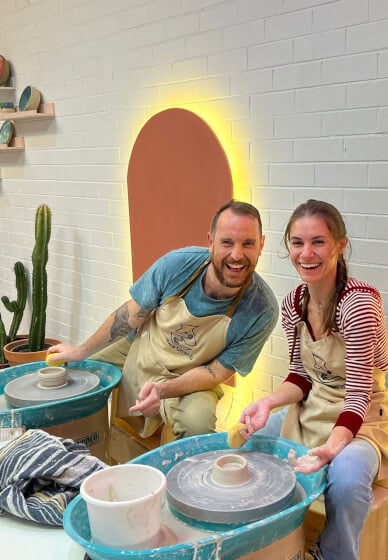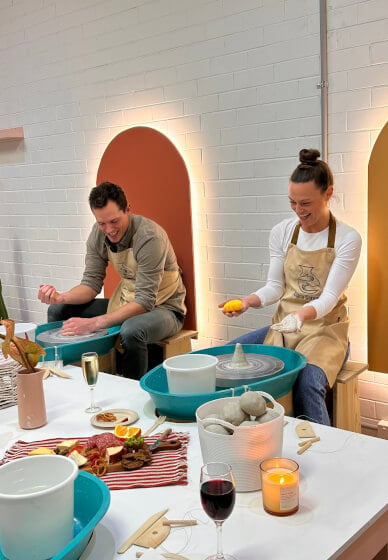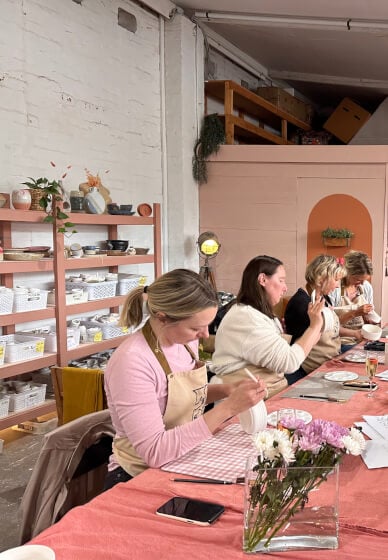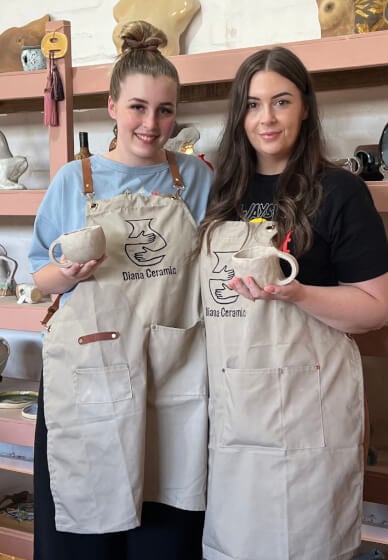Is Pottery A Suitable Hobby For Beginners?
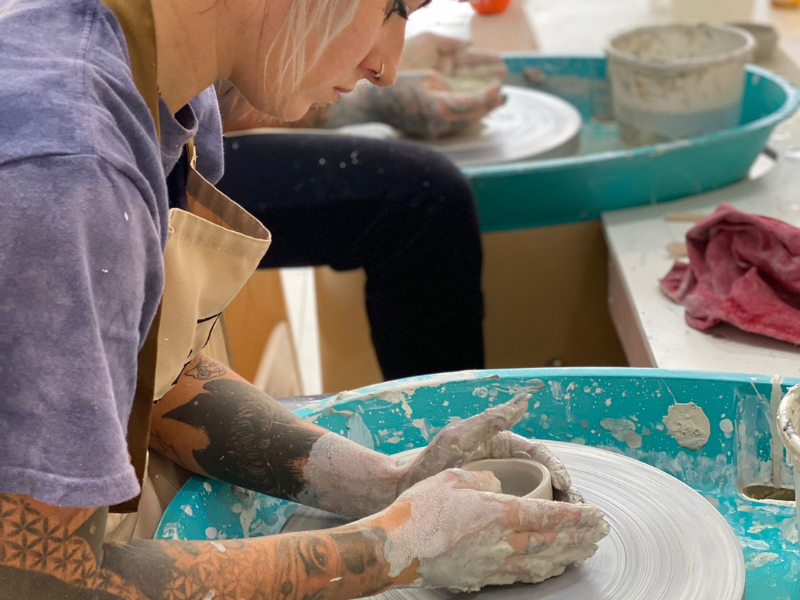
Pottery is a rewarding and therapeutic craft that has captured the hearts of many. Whether you’re looking for a creative outlet or simply seeking a relaxing hobby, pottery is an excellent choice for beginners. It combines artistry, craftsmanship, and mindfulness, offering numerous benefits. But is it suitable for someone new to the world of clay and ceramics? This guide explores why pottery could be your next favourite hobby and how easy it is to get started.
What Skills Do You Need to Start Pottery?
Pottery is a hands-on craft that requires creativity and a certain skill level. As a beginner, you don’t need to be an artist right away, but a willingness to learn is essential. Here are a few skills you’ll develop over time:
- Hand-Eye Coordination: Working with clay requires precision and attention to detail. As you work, you’ll improve your ability to shape and manipulate the clay with your hands.
- Patience and Focus: Pottery involves a multi-step process. From shaping the clay to glazing your final piece, patience is key.
- Problem-Solving: Pottery often requires trial and error. Figuring out the best way to shape, dry, or glaze your project teaches creative problem-solving.
- Attention to Detail: Whether you’re focusing on the design, texture, or finish, pottery sharpens your attention to detail.
How Easy Is It to Learn Pottery as a Beginner?
Starting pottery might sound intimidating, but the process is straightforward and accessible for beginners. It’s all about breaking down the craft into manageable steps. Here’s how easy it can be to learn:
- Beginner Classes: Many pottery studios offer workshops tailored for beginners. These classes teach the basics of wheel throwing, hand-building, and glazing. With experienced instructors guiding you, it’s easy to dive in and start learning.
- Workshops for Beginners: Beginner workshops are structured to help you develop basic skills while having fun. In Melbourne, the pottery scene is vibrant, and local workshops can give you hands-on experience with clay.
- Pacing Yourself: Pottery is not something you’ll master in a single session, but that’s the beauty of it. Over time, you’ll build skills and confidence at your own pace. Each piece you create will reflect your progress.
What Equipment Do Beginners Need to Start Pottery?
Getting started in pottery doesn’t require a massive investment in equipment. Here’s a list of the basic tools you’ll need as a beginner:
- Clay: Start with a basic stoneware or earthenware clay. It’s affordable and easy to work with.
- Pottery Wheel: A pottery wheel is essential for wheel throwing but not required if you prefer hand-building. Most beginner classes provide access to wheels.
- Tools: Basic pottery tools include ribs, sponges, loops, and trimming tools. These help shape and refine your pieces.
- Kiln: A kiln is used to fire your clay. Most studios offer firing services, so you don’t need to own one at home.
- Glaze: Glaze is applied to your piece after firing to give it colour and texture. Beginners can start with basic glazes before experimenting with custom blends.
As you progress, you can gradually invest in more specialised tools. However, most beginners can start with the essentials listed above.
Is Pottery Expensive for Beginners?
Pottery can be as affordable or as expensive as you choose. For beginners, there are many ways to minimise costs. Here’s a breakdown of the costs involved in starting pottery:
- Workshops and Classes: Pottery classes are usually reasonably priced, with many studios offering workshops that provide all the necessary equipment and materials. This can be a cost-effective way to get started without investing in your own tools right away.
- Clay and Glaze: Basic clay and glaze are relatively affordable, and you’ll likely use them as part of your class fees. When purchasing them individually, you can expect to pay for the materials you use, including firing costs, which may also be covered in class fees.
- Tools and Equipment: Purchasing your own pottery wheel and kiln can be a significant investment, but many beginners prefer to take advantage of studio access where equipment is provided. This allows you to try pottery without the upfront cost of owning expensive tools.
Overall, pottery is an affordable hobby for beginners, particularly when you join a local studio where all the equipment and materials are included. By taking part in these classes, you can get started without worrying about upfront costs. Explore ceramic pottery workshop options for those just starting out, and you'll discover hands-on classes that not only help you develop your skills but also keep your expenses manageable.
What Are Some Common Mistakes Beginners Make in Pottery?
As with any new hobby, beginners often encounter a few bumps along the way. Here are some common mistakes you might make as you start your pottery journey and tips for avoiding them:
- Not Preparing the Clay Properly: Failing to wedge the clay properly can result in cracks or air bubbles. Before starting your project, always knead and flatten your clay to remove air pockets.
- Rushing the Drying Process: The pottery needs time to dry properly before firing. Don’t rush the process by placing your piece in direct sunlight or a hot oven. Drying slowly at room temperature will prevent cracking.
- Not Paying Attention to the Kiln: Kiln firing is a critical step in the pottery process. Improper firing can result in uneven results or pieces that crack. If you’re unsure, always seek advice from an expert.
- Overworking the Clay: Overworking clay can cause it to dry out or become too soft. Keep an eye on its texture and take breaks to keep it workable.
- Safety: It’s crucial to prioritise safety when working with pottery materials. Certain clays and glazes contain silica, which can be harmful if inhaled. To protect yourself, always wear a dust mask when handling dry clay or mixing glazes. Ensure your workspace is well-ventilated to minimise dust exposure. Additionally, be mindful of kiln safety, as kilns operate at high temperatures. For comprehensive safety guidelines and information on working with silica, consult relevant occupational health and safety resources.
Ready to Get Your Hands in the Clay?
Pottery is a fantastic hobby for beginners, offering a blend of creativity, relaxation, and skill development. Whether you’re creating functional items like mugs and bowls or decorative pieces, pottery is an enriching experience. So, if you’re ready to try pottery, inquire about Diana Ceramic's upcoming class schedules.
